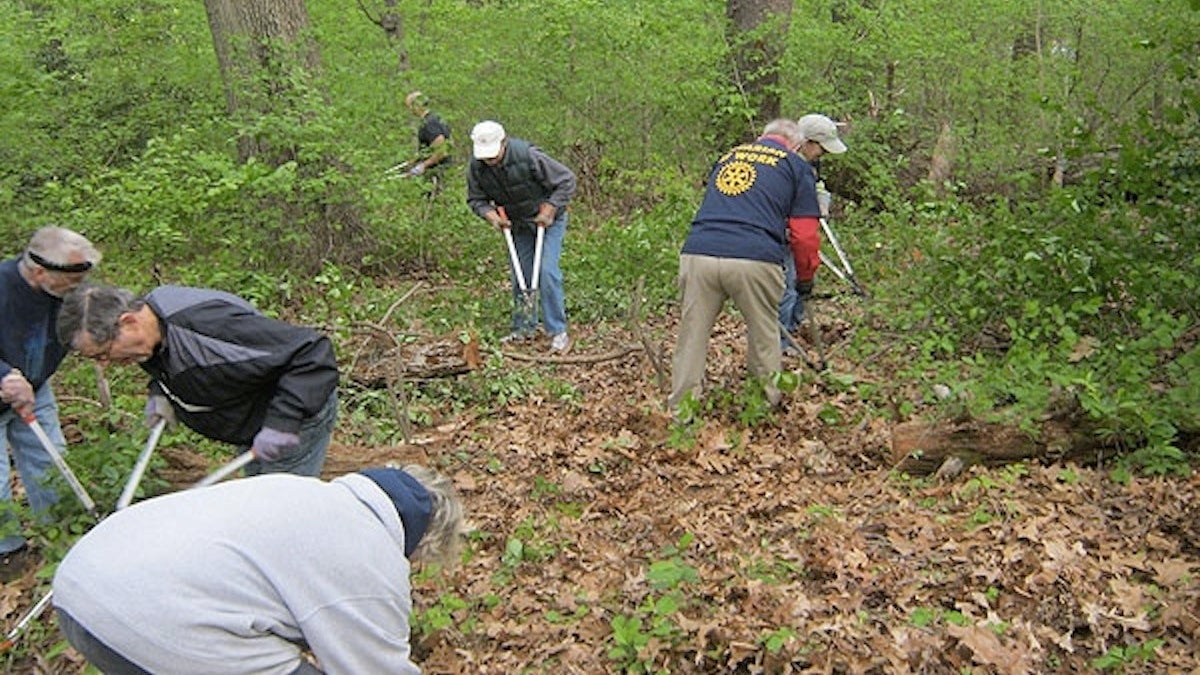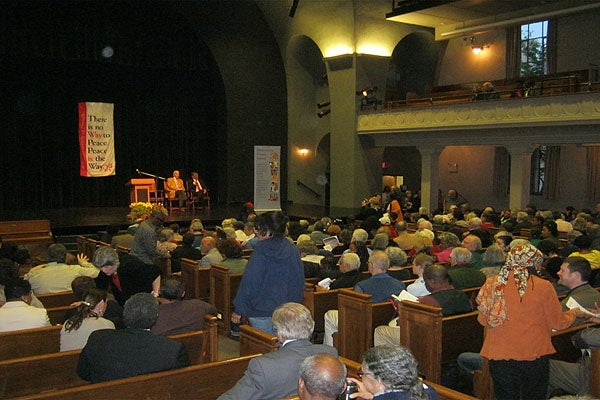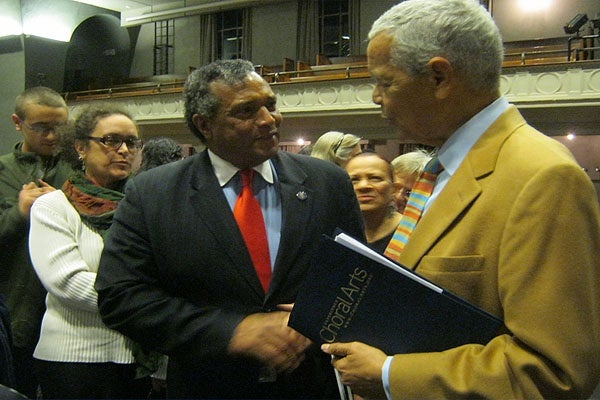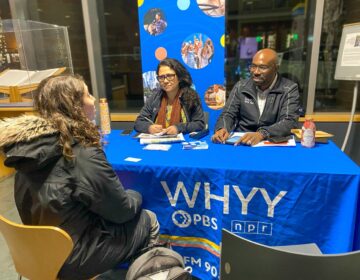Julian Bond: Race is a social construct – not a biological absolute
-

-

-

-

-

-

-

-

The Friends of Cresheim Trail working on an existing portion of the path. (Alaina Mabaso/NewsWorks Photo, file)
-

-

-

-

-

-

Germantown Friends School teamed with the Germantown Monthly Meeting to welcome notable civil rights activist and scholar Julian Bond for a special session last week with GFS seniors and an evening lecture in the campus’s Loeb Performing Arts Center.
Head of School Dick Wade and Germantown Monthly Meeting Racial Justice Committee clerk Ed Nakawatase introduced Bond to a large, diverse and enthusiastic crowd.
Wade called Bond’s visit with GFS students “a great gift to us,” and Bond received a standing ovation from the crowd as soon as he took the podium.
Bond was born in 1940 in Nashville, TN, and has had a remarkable career as a politician and equal-rights activist. In 1960, he helped to form the Student Nonviolent Coordinating Committee, and won his first election, to the Georgia House of Representatives, in 1965. However, his opposition to the Vietnam War meant he was barred from his seat, until the Supreme Court ruled in his favor the next year. Bond went on to serve four terms as a state representative in Georgia and six terms in the state senate. He’s also a former Chairman of the NAACP, the current President Emeritus of the Southern Poverty Law Center, and teaches history at the University of Virginia, among other roles.
Bond, a consummate orator, nevertheless left audience members marveling at the bluntness of his message.
“Everybody in this room imagines that he or she belongs to a race,” he said. “But we know that race is a social construct, not a biological absolute.” Despite this lack of genetic evidence for racial divisions, Bond said racial troubles still grip American society: “it isn’t just a pigment of our imagination.”
He pointed out that while many ethnic groups have been successfully assimilated into the American social order – including Polish, German, Irish or Italian-Americans – African-Americans remain “the indigestible alternative”. Unlike the voices of other minority or ethnic groups, African-American vocalization “has been demeaned as identity politics, somehow democratically illegitimate.” Meanwhile, Puritanism, the Confederacy, and even the Ku Klux Klan have been defended as “ordinary expressions of democratic activism”, no matter what their ideologies are.
Bond dwelt at length on America’s racial history (the word “America” scrambled is “I Am Race”, he said), through slavery (his grandfather was born to a slave in 1863 Kentucky), the Civil War, and the Civil Rights era (Bond was a student of Dr. Martin Luther King, Jr at Morehouse College) up through the present day.
After hundreds of years of racial oppression, and “only forty-five years” since the laws and protections of the US Constitution were actually extended to all US citizens, he disparages any illusion that Barack Obama’s election ended America’s racial troubles.
“Obama’s election convinced people that all racial barriers and restrictions had been vanquished and we had entered a racial nirvana across the land.” In reality, he said, in many cases Obama’s rise has only worsened existing racism.
“Obama’s election is to the tea party as the moon is to werewolves,” he said.
Bond peppered his speech with harsh criticism of the current Republican movement in America.
“The Civil Rights act of 1964 was one of congress’s finest hours,” Bond declared. “Those were the days when politicians from both parties supported the struggle for civil rights. Now they struggle to be civil.”
In response to Republican politicians and pundits who call for their country back, Bond asked, “What was their country like? In their country, I couldn’t eat at a lunch counter or cast a vote…These were not the good old days for me.”
He recounted racially-tinged Republicans indictments of Obama in the media, from Glenn Beck’s claim of Obama’s “deep-seated hatred of white people” to Rush Limbaugh’s assessment of Obama’s health-care reform as “reparations” for the benefit of African-Americans.
Bond illustrated a troubling “tautology” in contemporary American discourse, in which African-American behavior, and not racism, is claimed as the cause of ongoing racial division: the idea that “these people are poor because they’re pathological, and they’re pathological because they are poor.”
He illustrated the ills that still disproportionately affect the black community, from higher infant mortality rates and lower life expectancy to increased risk of homicide, higher unemployment and a higher chance of being uninsured. He also pointed to evidence that low-income minority communities have been targeted for sub-prime mortgages.
While paying homage to major civil rights leaders, Bond also emphasized the role of thousands of ordinary people who made the movement’s gains possible: “a voteless people voted with their bodies and their feet,” paving the way for other social revolutions, including the anti-war movement and the ongoing struggle for women’s rights.
The close of his speech immediately brought the crowd to another standing ovation, and during a question and answer session, he addressed an array of local concerns, including public school closures, the MOVE bombing, mass incarceration, the new voter ID law, and the cost of higher education.
WHYY is your source for fact-based, in-depth journalism and information. As a nonprofit organization, we rely on financial support from readers like you. Please give today.




